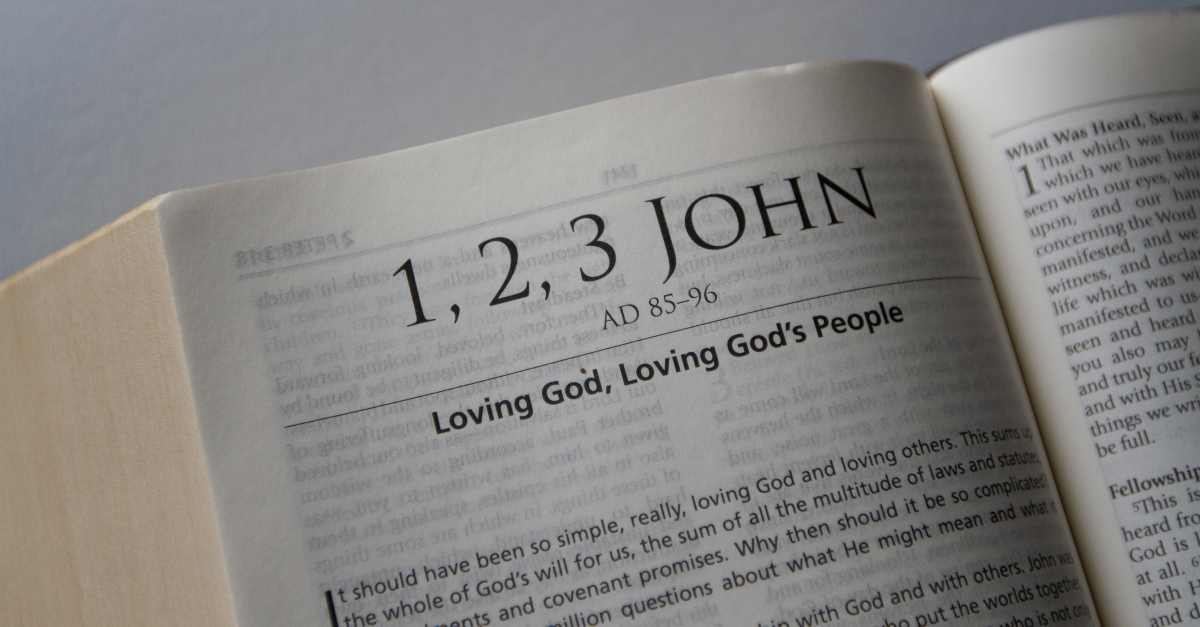Why Do Jesus’ Middle Eastern Apostles Have Common English Names?

North Americans and Europeans often give their sons names such as Paul, Matthew, and John. These Western names are easy to pronounce and spell, but they don’t fit with the Bible’s Middle Eastern context. We wouldn’t be surprised to meet an apostle named Abraham...but Philip? After all, Jesus and His disciples were Jews.
Naming the Apostles
The twelve apostles were Simon (Peter), Andrew, James, John, Philip, Bartholomew (Nathanael), Thomas, Matthew (Levi), James, Thaddaeus (Judas), Simon, and Judas Iscariot. (Matthew 10:2-4)
It appears that Thaddaeus’ name needed to be changed to prevent confusion. The same is perhaps true of Simon who became Peter, also known as “Cephas” which is Syrian for “rock.” Petros is the Greek for Cephas.
Ioudas (Judas in Greek) means “he shall be praised” and is related to the Hebrew name Judah. Bartholomew’s name means “son that suspends the waters” but was switched by Christ to Nathanael or “gift of God.” “Saul” became “Paul,” meaning “little.”

Familiar Boys’ Names
Most of the Apostles’ names are fairly common today. I have friends and relatives named Matthew, Peter, Andrew, and James. I had classmates with these names, too. Why weren’t the Apostles named after Jewish ancestors; Bible heroes like Mishac, Shadrac, and Abednego, or even Abraham and Moses?
Jesus did not call these men according to the symbolism behind their names; He chose ordinary men guilty of common sins, who often failed to live up to their names.
Empire Name Games
The Roman Empire spread across the Middle East and swallowed up the regions where Jesus preached. Galilee, Samaria, and Jerusalem were all under Roman authority, and Greek was widely spoken. The New Testament was written down in a form of Greek, perhaps a blend of Greek and Aramaic.
Jesus’ Apostles sometimes bore Greek names, or Greek versions of Hebrew names were used in the Gospels. If John, which is Ioannes in Greek, was known as Yowchanan (the Hebrew version) to some of his family, such information has not been supplied...so we can only speculate. It’s quite possible that a certain generation favored a new selection of choices as is true today. We rarely Christen a child “Bartholomew” which is old-fashioned. If we use the name at all, it’s likely shortened to “Bart.”
Old names come back in style with the popularity of certain actors (think Benedict). New names emerge from popular culture (Bear, Dixon, Gray) or parents appreciate the lyrical sound of a foreign word such as “Kai” (Hawaiian for “Sea”) or “Midori” (Japanese for “Green.”)
Names, like language, are subject to cultural influences.
From Greek to English
In many cases, Westerners reading from the Gospels aren’t seeing the given names of the disciples: we are reading Anglicized versions. The disciples were not known as “Peter” and “Matthew;” their parents and friends might have called out “Petros,” “Matthias,” or nicknames and short forms similar to “Pete” and “Matt.”
It’s not uncommon for us to apply nicknames to co-workers, relatives, and friends. Usually, they like to have the last word and might even reject their new identifiers. Some men named “Thomas” quite like “Tom,” but it’s not respectful to assume. I try to imagine how the disciples would have responded to having their names changed—did they know the meanings of their new names and rejoice at their new identities? There’s no mention of any grumbling; that they preferred their old name. There's no record of these men saying “how dare Jesus take such liberties!” The Apostles appear to have adjusted without argument.
The Power of a Name
We sometimes hear a name and associate it with the meaning (if we know it) or it reminds us of others with the same name, for better or worse. As illogical as it might sound, I’ve always cringed at the name “Jason” because of a bully at school by that name, but Jason means “he that will cure.” There are lots of kind, loving men called Jason, but such is the power of suggestion that (to me) “Jason” stood for “bully” for a long time.
“Names can tie us to our origins,” they can “allude to our circumstances,” or they might “stand for something that mattered to our parents.” Yet, the disciples’ modern names probably weren’t as symbolic and meaningful to a Jew as they are to us 2,000 years later. They weren’t yet attached to tradition, whether biblical or personal. Maybe that was the point, since Jesus was doing something new.
Now, whenever a believer hears the name “Matthew” she might think of Christ’s disciple who was called out of a loathsome profession (tax collector) to preach the gospel. I hear “John” and picture the beloved disciple into whose care Jesus dedicated His mother. How kids with modern names behave and what they grow up to become will potentially create expectations for every “Jaspin” and “Dixon” for generations.

Titles by Jesus
“Listen, O isles, unto me; and hearken, ye people, from far; The LORD hath called me from the womb; from the bowels of my mother hath he made mention of my name.” (Isaiah 49:1 KJV) Christ recognized the thematic significance of being named by God. He saw fit to represent new life in the Spirit by renaming a few of his disciples. When Jesus selected a new name for one of them, His selection was meaningful and prophetic.
“Simon” (or Simeon) means “hearing,” which is a good name, though not as joyous as “gift.” Yet, there can’t be good communication between people without good listening. One of the Apostles remained “Simon” and the other became “Peter” because Jesus said to him “you are Peter and on this rock I will build my church, and the gates of Hades will not overcome it.” (Matthew 16:18)
Christ wasn’t just looking for a way to tell the two Simons apart; He was making a prophetic statement. Jesus called each of these men to a purpose in the church which would emerge and He drastically changed the course of each man’s life. Our Savior apparently wanted a rock and a good listener to share the gospel with the world.
Thaddaeus means “that praises or confesses,” a profitable switch from “Judas” which still carries negative weight today. Matthew’s “original name, Levi, suggests that he was a man of the priestly tribe.” Levi means “adhesion.” But Matthew was re-Christened “gift” or “given,” a profound switch for a tax collector accustomed to taking rather than giving. Bartholomew became Nathanael, or “gift of God.” Their names emphasize that salvation is a gift, not something one earns or is born into. After all, in spite of their calling, each man was a sinner when he was called and continued to sin throughout his life. The only sinless, perfect man was Christ.
A name is not a talisman or a magic charm: a symbol, not an enchantment. Remember: Judah did not live up to his name (“He shall be praised”), although his betrayal of Jesus facilitated Christ’s death and was instrumental in bringing glory and praise to God.
East Meets West
Paul (little) might not sound very manly, but this apostle was brought low from a lofty position which was signified by the name “Saul,” Israel’s first king. While Saul is definitely atypical on a school roster in many parts of North America, it’s common in worldwide Jewish communities. Sometimes, a name that seems American or European is borrowed from Middle Eastern tradition, but has been used in America for so long that it sounds like a common Western name. Like ancient inventions originally from the East (paper, the printing press), we Westerners prefer to think we thought of them first.
Not all of the disciples bore monikers with we would consider having a “Western ring.” “Judas” is a form of “Judah,” a Hebrew name which persists in Christian culture. On the other hand, if you imagined “Thaddaeus” was Hebrew, think again—it’s Greek. Just because a name is unfamiliar doesn’t make it “Eastern.”

The Great Name of Jesus
Even Christ’s name was transformed over time. We never meet a “Jesus” in the Old Testament. Isaiah prophesizes about “Immanuel.” Yet, the name “Jesus” is “the Greek form of the Hebrew name ‘Joshua’ which was originally ‘Hoshea’ [...] but changed by Moses into Jehoshua [...] or Joshua” and eventually “Jeshua, whence the Greek form Jesus.” Christ received this name “to denote the object of his mission, to save.” Joshua translates to “Jehovah is his help, or Jehovah the Saviour.”
The very name of Jesus unites Jew and Gentile, Hebrew and Greek, East and West, under the name of a single savior. He is King of the Jews, but He was also ultimate King over every empire, including the Roman Empire, and He is Lord of “every nation, tribe, people and language.” (Revelation 7:9) His great name isn’t Western or Eastern but unites every person under one family tree and beckons each person to accept his or her perfect identity as a child of God.
Photo Credit: ©GettyImages/RoterPanther

Originally published June 17, 2020.





